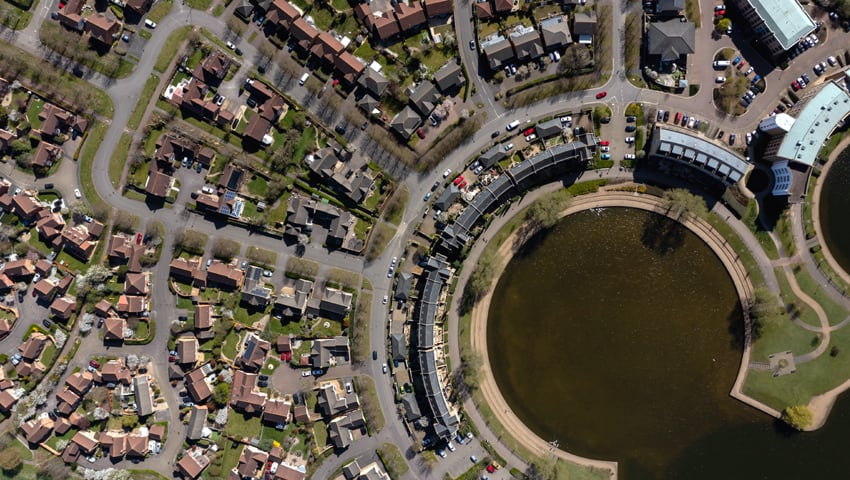In a keynote speech – before the general election was called – to property industry leaders at the UKREiiF conference in Leeds on Tuesday, Labour’s Deputy Leader and Shadow Housing Secretary, Angela Rayner, told developers that Labour’s new era for private sector involvement in housing development means “backing developers who deliver.”
Labour said that it would set high standards on design, quality, affordable homes, green spaces and infrastructure, while creating the next generation of New Towns, echoing those built by the first Labour government after World War Two.
Rayner pledged to work in partnership with responsible developers willing to deliver affordable homes accompanied by green spaces, schools, and transport links.
Labour said that New Towns are just one tool the party will deploy to meet its ambition of building 1.5 million new homes across Britain over the next Parliament.
Rayner said, “Developers who deliver on their obligations to build high quality, well designed and sustainable affordable housing, with green spaces and transport links and schools and GPs surgeries nearby, will experience a new dawn under Labour. But those who have wriggled out of their responsibilities for too long will be robustly held to account.
“Labour’s towns of the future will be built on the foundations of our past. The post-war period taught us that when the government plays a strategic role in housebuilding, we can turbo-charge growth to the benefit of working people across Britain. That is what Labour’s plans will achieve.”
Commenting on the policy, Lawrence Turner, Director, Boyer said, “The announcement by Angela Rayner sets out a bold and ambitious plan to deliver ‘towns of the future’ to help tackle the UK’s housing crisis. As past governments have shown, building 300,000 homes per year is a monumental task, but it is one that is desperately needed to address the severe shortage of housing that has been a growing problem for many years.
“To do this, Labour proposes to set up a New Town Commission within six months of a Labour government coming into power, which will prioritise the delivery of housing and infrastructure development to support new communities. At the heart of the plan is the provision of 40% affordable housing in these New Towns, which would help to address the housing needs of all segments of society.
“However, the task of creating New Towns and developing housing at such a rapid pace is not without its challenges. The political hurdles that come with development on the edge of settlements and the release of Green Belt, is something that has been very difficult for the incumbent government to deliver. Conservative voters, who tend to live and oppose development in these areas, have been a significant roadblock to progress for the government over the last 14 years. The decision by Labour to reclassify low-quality areas of Green Belt land for development, known as Grey Belt, is a controversial move that will likely face opposition from environmental groups and local residents. However, it is a necessary first step to release the most sustainably located land for much-needed housing. Tough decisions like this will be crucial if Labour is to meet its ambitious housing targets.
“The reintroduction of housing targets in England and reforms to the planning system are welcomed and are an important component of any plan to address the housing crisis. Without mandatory housing targets and a streamlined planning process, it will be impossible to deliver 300,000 homes per year.
“It is also vital that Labour works with the private sector to fund the development of these new towns. While the government can provide support and incentives for developers to build affordable housing, ultimately it will be private investment that drives the growth of new communities. By creating a positive environment for developers and ensuring that land values reflect the need to build affordable housing, New Towns can make significant progress in addressing the housing crisis.”
